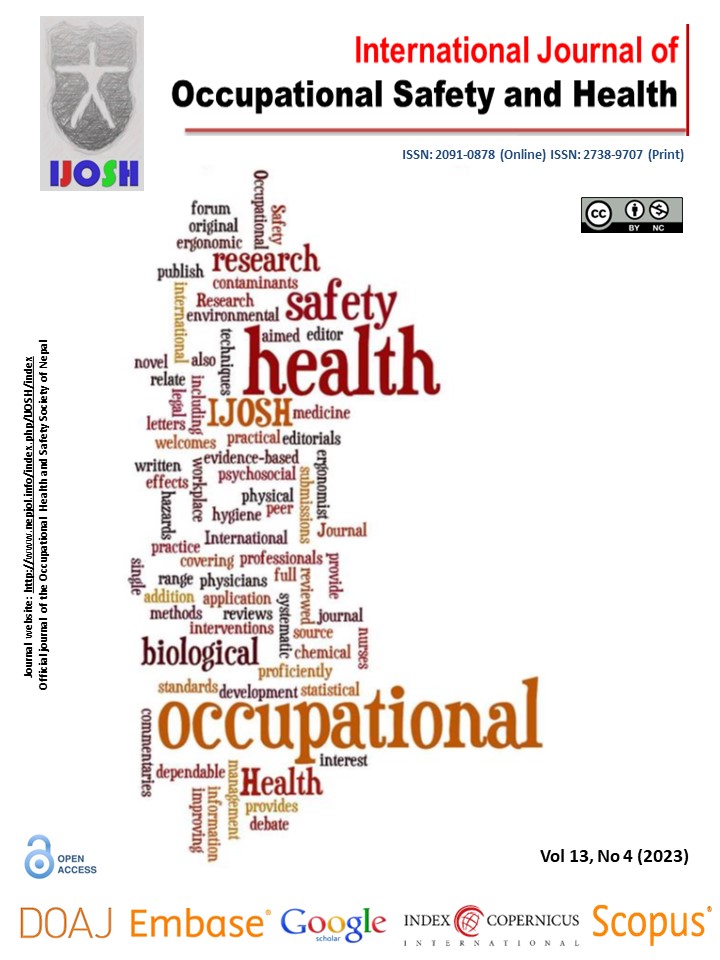Depression as a predictor of sleep quality in health workers who faced the COVID-19 pandemic in Mexico
DOI:
https://doi.org/10.3126/ijosh.v13i4.56457Keywords:
COVID-19 pandemic, depression, health workers, sleep qualityAbstract
Introduction: There is a relationship between depression and sleep quality; however, the impact of the COVID-19 pandemic on this association is unknown, especially for those health workers who faced the pandemic. Therefore, we aimed to identify the association between depression and sleep quality in health workers who faced the COVID-19 pandemic.
Methods: A survey was performed on 150 health workers with at least 2 years of working tenure in a public maternal perinatal hospital in Mexico, between September and December 2021. Sociodemographic data, levels of sleep quality, depression, anxiety, and gastrointestinal function were obtained through a self-administered questionnaire. Cardiovascular risk was obtained according to age, lifestyle habits, blood pressure, anthropometry, body composition and biochemical measurements.
Results: Those with depression were 10.3 times more likely to have poor sleep quality compared to those without depression, adjusted for gastrointestinal function (95% CI 2.92 – 36.54, p<0.001). Those with depression were 7.23 times more likely to have poor sleep quality compared to those without depression, adjusted for gastrointestinal function, anxiety, and cardiovascular risk (95% CI 1.85-28.14, p<0.001).
Conclusion: Health workers’ depression should be considered a predictor of poor sleep quality, especially in those who faced the COVID-19 pandemic.
Downloads
Downloads
Published
How to Cite
Issue
Section
License
Copyright (c) 2023 Adriana Garduño-Alanis; Yizel Becerril-Alarcón, Betsy C Sosa-García, Lizbeth Morales-González, Ángeles L Avilés-García, Blanca G Alvarado-Bravo, Hugo Mendieta-Zerón

This work is licensed under a Creative Commons Attribution-NonCommercial 4.0 International License.
This license enables reusers to distribute, remix, adapt, and build upon the material in any medium or format for noncommercial purposes only, and only so long as attribution is given to the creator.





